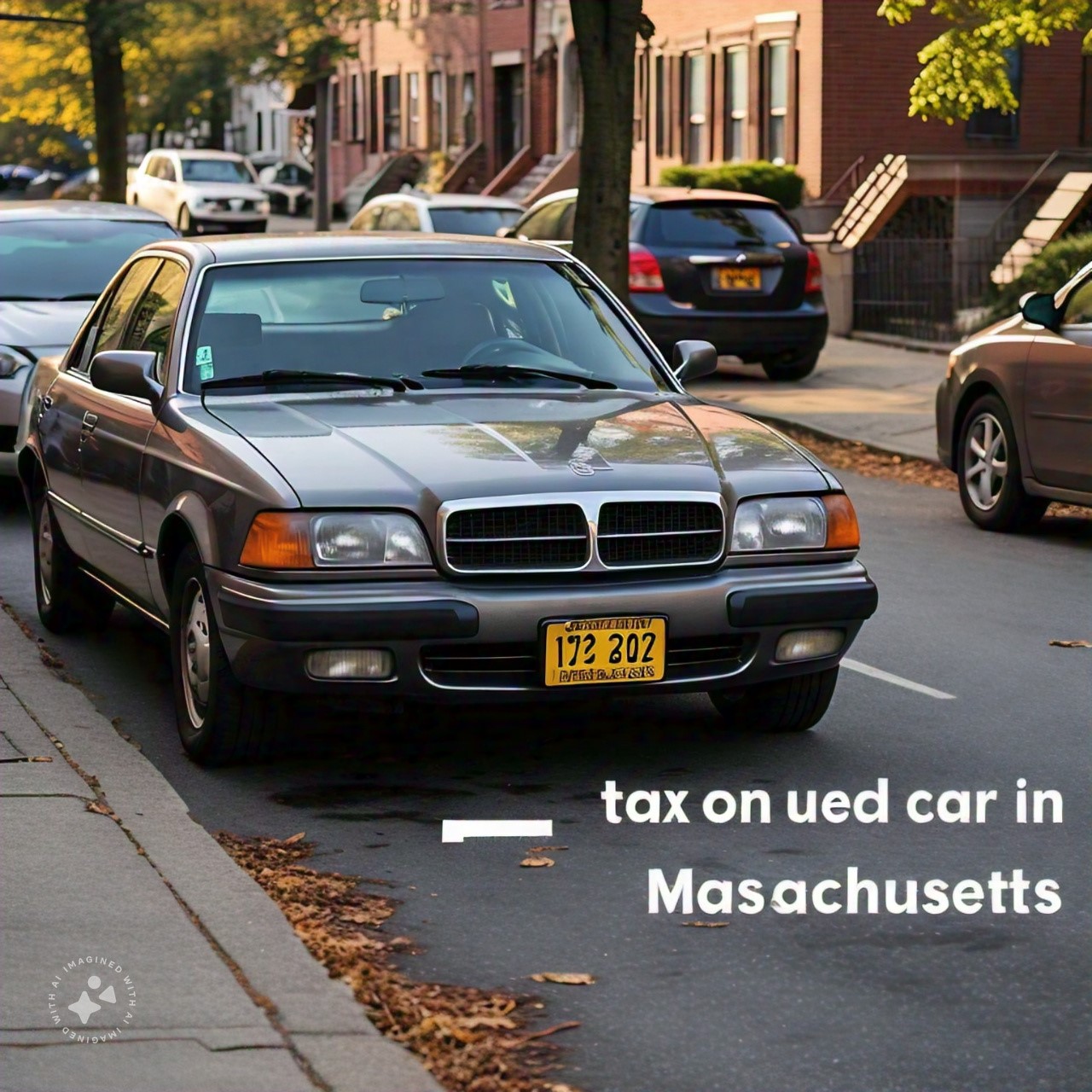When buying a used car in Massachusetts, it’s important to understand the associated taxes and fees. Along with the purchase price, buyers should account for sales tax, excise tax, registration fees, and any special considerations that may affect the final cost. This article provides a comprehensive guide to the tax structure, rates, and additional fees involved in purchasing a used car in Massachusetts, helping buyers make informed financial decisions.
Table of Contents
ToggleSales Tax on Used Cars
State Sales Tax Rate
In Massachusetts, the statewide sales tax rate for used car purchases is 6.25% of the vehicle’s purchase price. This tax applies uniformly across the state, with no additional local sales taxes on vehicle purchases. Whether you’re buying in Boston, Springfield, or any other city, the rate remains consistent.
Application of Sales Tax
Sales tax on used cars applies regardless of whether the vehicle is purchased from a registered dealership or a private seller. Here’s an example to illustrate:
- Example Calculation: If you buy a used car for $10,000, the sales tax would be calculated as follows:
Sales Tax=10,000×0.0625=625\text{Sales Tax} = 10,000 \times 0.0625 = 625Sales Tax=10,000×0.0625=625
In this example, the sales tax owed on a $10,000 car would be $625.
Use Tax
If a vehicle is purchased out of state or from a private seller, buyers are still required to pay a use tax, which is set at the same rate of 6.25%. This tax is due by the 20th day of the month following the purchase or when the vehicle is brought into Massachusetts. The use tax ensures that all vehicles operating in Massachusetts contribute to the state’s tax revenue, regardless of where they were initially purchased.
Excise Tax on Vehicles
In addition to the sales tax, Massachusetts imposes an annual excise tax on vehicles. This tax is assessed by local cities and towns and is due annually, based on the vehicle’s value.
Excise Tax Rate
The excise tax rate in Massachusetts is $25 per $1,000 of the vehicle’s assessed value. The assessed value is calculated as a percentage of the manufacturer’s original list price, with different depreciation rates based on the vehicle’s age:
- Year before manufacture: 50% of the original list price
- Year of manufacture: 90%
- Second year: 60%
- Third year: 40%
- Fourth year: 25%
- Fifth year and beyond: 10%
This structured depreciation means that older vehicles generally have lower assessed values and therefore lower excise taxes.
Calculation Example
Here’s an example calculation for a car with an original list price of $20,000, manufactured in the current year:
Excise Tax=0.90×20,000×251,000=450\text{Excise Tax} = 0.90 \times 20,000 \times \frac{25}{1,000} = 450Excise Tax=0.90×20,000×1,00025=450
For this vehicle, the excise tax in its first year would be $450. This amount decreases over time as the vehicle’s assessed value drops according to the depreciation schedule.
Additional Fees Associated with Vehicle Purchase
Beyond sales and excise taxes, buyers should be prepared for a variety of additional fees that are required for vehicle registration and ownership in Massachusetts.
Registration and Title Fees
The following fees apply to most used car purchases:
- Vehicle Registration Fee: $60
- Certificate of Title Transfer Fee: $75
- Lienholder Addition or Removal: $25 (if applicable)
- Annual Inspection Fee: $35
These fees are mandatory and must be paid upon registering the vehicle with the Massachusetts Registry of Motor Vehicles (RMV).
Total Cost Consideration
When budgeting for a used car purchase, it’s essential to include these taxes and fees in the overall cost estimate. For example, for a used car priced at $10,000, the breakdown might look like this:
- Purchase Price: $10,000
- Sales Tax: $625
- Registration Fee: $60
- Title Transfer Fee: $75
- Total Estimated Cost: $10,760
By factoring in these additional costs, buyers can better anticipate their total expenditure and avoid unexpected financial surprises.
Exemptions and Special Cases
While most used car purchases in Massachusetts are subject to the standard tax rates and fees, there are a few situations where exemptions or special cases may apply.
Family Transfers
In Massachusetts, transfers of vehicles between immediate family members (such as parents, children, or siblings) may be exempt from the sales tax, provided that the transferor has already paid sales tax on the vehicle. This exemption aims to reduce the tax burden for families who pass vehicles between relatives, as long as the original tax obligation was met.
Charitable Donations
Vehicles donated to qualifying charitable organizations may also be exempt from sales tax. In such cases, the recipient organization is typically responsible for the necessary paperwork and compliance, ensuring the transaction meets the standards for tax exemption. Buyers interested in donating or purchasing from charitable organizations should verify the vehicle’s eligibility for tax exemption with the Massachusetts RMV.
Implications for Buyers
For a smooth transaction and compliance with state regulations, it’s crucial for buyers to complete the necessary documentation and ensure they meet all tax obligations.
Compliance and Documentation
The Massachusetts RMV requires specific paperwork for vehicle registration and tax compliance. Key forms include:
- Motor Vehicle Certificate of Payment of Sales or Use Tax Form (ST-7R): This form confirms that sales or use tax has been paid on the vehicle.
- Application for Registration and Title (RMV-1): This form is required to transfer the title and register the vehicle with the RMV.
Completing these forms accurately is essential for legal compliance and avoiding delays in the registration process.
Fair Market Value Assessment
In certain cases, the Massachusetts RMV may determine that the fair market value of the vehicle is higher than the declared sale price, especially if the sale price seems unusually low. If this happens, the RMV may assess the sales or use tax based on the higher fair market value rather than the actual sale price. This policy ensures that taxes reflect the true value of the vehicle and prevents under-reporting of vehicle prices.
Conclusion
Purchasing a used car in Massachusetts involves several financial considerations, including a 6.25% sales tax, an annual excise tax based on the vehicle’s depreciated value, and various registration and title fees. Additionally, certain exemptions, such as those for family transfers and charitable donations, may apply in specific cases. By understanding these tax components, buyers can budget effectively and ensure they comply with state regulations.
Whether you’re buying a used car from a dealer, private seller, or out-of-state vendor, being informed about Massachusetts’s tax structure helps you make the best financial decisions and avoid unexpected costs. By planning ahead for taxes, fees, and documentation, you can enjoy a smooth transaction and hit the road with confidence in your new-to-you vehicle.


